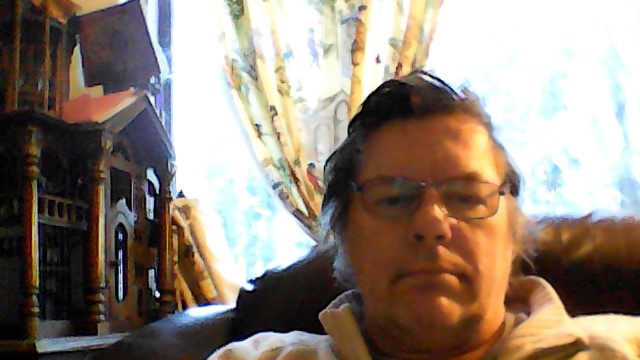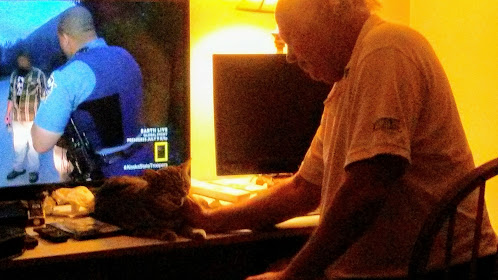Shoah (1985), directed by Claude Lanzmann, is a monumental nine-and-a-half-hour documentary about the Holocaust, constructed entirely from first-person testimonies. Eschewing archival footage, Lanzmann relies solely on interviews with survivors, former Nazis, and bystanders, intercut with haunting visuals of the present-day locations where atrocities occurred. The film unfolds slowly and methodically, drawing out the psychological weight of memory and the mechanisms of genocide. Lanzmann interviews Jewish survivors of the death camps, such as Treblinka and Auschwitz, as well as train conductors and SS officers, often pushing them to confront the moral implications of their roles. The result is a chilling, deeply human portrait of systematic extermination, not through spectacle but through voices and silences. Shoah is less a historical record than a philosophical meditation on the act of remembering and the impossibility of fully representing the Holocaust. It stands as one of the most significant films ever made on genocide.
Memory and genocide. Erasure of a gene pool. Remember? We said, Never Again. Never erase genocide from memory again. f*ckers, you'll pay. Glad the poor, long-suffering Jewish people would finally have their own homeland -- Israel. No more diaspora blues. How did Robert Frost put it? Home is the place where, when you have to go there, they have to take you in. And when they got there, because they had to, the Palestinians welcomed them with open arms. Oh boy, one Sunni lad said to another, now we don't have to go through history alone anymore! Or something like that. But then they began to fight like die Katzenjammer kids.
Growing up Catholic in Massachusetts, I lived for a while in the Jewish neighborhood of Mattapan, where the boundaries between communities were porous but real. We lived in iconic three-deckers. I remember the day I slapped my friend Jeffrey Rosenbaum in our shared backyard-- a moment of childhood aggression that ended our friendship and left me with a wound that never quite healed. Later, the Jewish neighbor who lived on the first floor confronted me about the incident (apparently the incident went phone viral) with words that have haunted me for decades: "I'd really like to know what makes you tick." The question carried an undertone of genuine bewilderment, as if my capacity for casual cruelty toward a Jewish child revealed something essential and troubling about my character. For my part, I couldn't get over how red his white cheek turned where I had applied my filaments of wrath.
This early encounter with Jewish wariness sent me searching for understanding. I read Elie Wiesel's Night as a child, watched Claude Lanzmann's nine-hour documentary Shoah, studied Alain Resnais' Night and Fog, and absorbed Marcel Ophuls' The Sorrow and the Pity, which made me want to strike out against collaborators everywhere -- hell, I became punchy. I grew up on Woody Allen's nervous Holocaust jokes-- like the one about coming home from school and telling his mother he was dating a shiksa, whereupon she calmly walked into the kitchen, turned on the gas, and stuck her head in the oven. These cultural artifacts shaped my understanding of Jewish experience as one defined by perpetual vulnerability and the proximity of annihilation. And probably it was my fault.
Yet as I write this, watching the systematic destruction of Gaza unfold in real time, I find myself grappling with a terrible historical irony. The same people whose suffering had taught me about the fragility of human dignity have become the architects of what can only be described as a contemporary holocaust-- lowercase, as I now distinguish it, but no less real in its systematic dehumanization and slaughter of Palestinian civilians.
The Dreyfus Mirror
Hannah Arendt, in her monumental study The Origins of Totalitarianism, analyzed the Dreyfus Affair not merely as an episode of French antisemitism, but as a dress rehearsal for the totalitarian horrors of the twentieth century. As she observed, the Affair "reveals the same inhuman character, preserving amid the welter of unbridled passions and the flames of hate an inconceivably cold and callous heart." Arendt understood that the bureaucratic machinery of persecution, the manufactured evidence, and the mob violence surrounding Dreyfus foreshadowed something far more sinister than traditional religious prejudice.
What makes Arendt's analysis particularly prescient is her insight into how victimhood itself can become a source of political power and, ultimately, a justification for the persecution of others. She noted how "the more equal the Jewish condition, the more surprising were Jewish differences. This new awareness led to social resentment against the Jews and at the same time to a peculiar attraction toward them; the combined reactions determined the social history of Western Jewry." The Jews of the Dreyfus era found themselves trapped in a paradox: their integration into European society made them more visible as targets, while their continued difference made them perpetual outsiders.
Today, we witness a cruel historical reversal. The descendants of Dreyfus-- metaphorically and sometimes literally-- have created their own machinery of exclusion and persecution. Netanyahu's Israel has adopted many of the same techniques that once terrorized Jewish communities: the manufacture of evidence to justify violence, the creation of administrative categories that strip people of basic rights, and the deployment of state violence against a defenseless population. The Jewish state has become, in Arendt's terms, a laboratory for totalitarian governance.
The Poison of Ressentiment
Friedrich Nietzsche identified a psychological mechanism that helps explain this historical transformation. In On the Genealogy of Morals, he described ressentiment-- a French term he used deliberately-- as the "slave morality" born from powerlessness, a reactive hatred that seeks to reverse historical hierarchies through moral condemnation rather than direct action. Nietzsche saw the Jews as masters of this psychological strategy, writing: "It was the Jews who, with awe-inspiring consistency, dared to invert the aristocratic value-equation (good = noble = powerful = beautiful = happy = beloved of God) and to hang on to this inversion with their teeth, the teeth of the most abysmal hatred (the hatred of impotence)."
What Nietzsche described as a survival strategy for an oppressed people has, in contemporary Israel, curdled into something far more dangerous. What we are witnessing in Gaza is the explosion of what Nietzsche called "that poisonous bile called ressentiment." The historical trauma of the Holocaust-- real, immeasurable, and lasting-- has been weaponized to justify the systematic oppression of Palestinians. The victims have become victimizers, but they retain the psychological posture of the persecuted, creating a feedback loop of justified violence.
The most frightening aspect of this transformation is the claim many Zionists make to the "Chosen People" trope. As I've come to understand it, this assertion is eerily similar to the Nazi claim to being the "Master Race." Both ideologies assert a fundamental superiority that justifies the subordination or elimination of others. The difference is that Jewish claims to chosenness carry the moral authority of historical suffering, making them even more dangerous because they are harder to challenge.
It seems to me that modern Zionist Jews have become insane, driven mad by what the Nazis did and having internalized their oppressors' values in a process that psychologists call identification with the aggressor. The ghetto walls that once imprisoned Jews have been rebuilt as barriers imprisoning Palestinians. The yellow stars that marked Jews for persecution have been replaced by Israeli ID cards that mark Palestinians for restriction and control.
The Lowercase holocaust
I want to be clear about terminology here. The Holocaust-- uppercase, proper noun-- refers to the specific, systematic extermination of European Jewry by Nazi Germany and its collaborators. But holocaust-- lowercase, common noun-- describes any systematic campaign of destruction against a civilian population. What is happening in Gaza qualifies as the latter, and recognizing this does not diminish the former. There: I covered my ass.
This lowercase holocaust in Gaza has been characterized not by war in any meaningful sense, but by the continuous slaughter of civilians. Most of the casualties have been women and children. Starving masses of people have been gunned down while seeking water and food. The Israeli military has targeted hospitals, schools, refugee camps, and aid distribution centers with methodical precision. Record numbers of journalists have been killed, clearly to keep these events under cover and prevent the world from witnessing the full scope of the atrocity.
Israel has attempted to corral Gazans into what can only be described as concentration camp conditions, probably with the intended message of encouraging emigration-- a form of ethnic cleansing through manufactured desperation. The parallels to historical Jewish experience are unavoidable and deeply troubling. Those who suffered under the Nazi regime have created their own version of systematic dehumanization.
Netanyahu's Israel has become a champion of totalitarianism, providing surveillance technology and crowd control techniques to authoritarian regimes throughout the Middle East, including Saudi Arabia and the UAE. This represents a new form of dehumanization and is, without doubt, a crime against humanity. The Jewish state has become an exporter of the very technologies of oppression that were once used against Jewish communities.
The Global Stakes
The transformation of victim into victimizer might be dismissed as a tragic irony of history were it not for the broader implications that writer Sim Kern has articulated with devastating clarity. As Kern observes, what happens in Gaza has profound implications for our entire species; it is not merely "a cause" but a test of what remains of human moral integrity.
"The weapons manufacturers and petrochemical shareholders who are profiting off the Palestinian genocide," Kern writes, "are the same group of elites dooming all life on earth to extinction through runaway climate change caused by burning fossil fuels. The struggle to free Palestine is inextricable from every other liberatory struggle on earth. In short: if we can free Palestine, we can free the world. And if we can't free Palestine, we're all fucked."
This analysis cuts to the heart of why Gaza matters beyond the immediate suffering of Palestinians. The same corporate and political structures that enable Israeli violence against Palestinians are driving climate destruction, wealth inequality, and the erosion of democratic institutions worldwide. The military-industrial complex that profits from Israeli occupation is the same system pushing humanity toward ecological collapse.
The international community's failure to stop Israeli atrocities represents a broader collapse of moral and political institutions. When the International Criminal Court issues arrest warrants for Israeli leaders and the world's most powerful countries openly declare they will ignore them, we witness the death of international law. When universities suppress student protests against genocide while claiming to uphold academic freedom, we see the corruption of educational institutions. When media outlets refuse to use the word "genocide" (the g-word) to describe systematic mass killing, we observe the failure of journalism itself.
The Necessity of Resistance
The United Nations should deploy NATO forces to Gaza and the West Bank to protect Palestinian civilians, just as international forces intervened in the Balkans and other sites of ethnic cleansing. But this will not happen because Israel, supported by the United States, has shown contempt for international law and has made threats against international institutions. This sounds very much like the Nazi approach to international governance.
We are witnessing the collapse of the post-World War II international order, and Israel's impunity in Gaza is both a symptom and cause of that collapse. The same institutions created to prevent another Holocaust are proving incapable of stopping a contemporary one.
As someone who grew up among Jewish neighbors, who learned about the Holocaust as a moral imperative to "never again," I find myself forced to conclude that "never again" has become a hollow slogan. It apparently means "never again to Jews," not "never again to anyone." This selective application of moral concern represents the ultimate corruption of Holocaust memory.
The poisonous ressentiment that Nietzsche identified in historical Jewish experience has reached its logical endpoint in Gaza. The victims of history's greatest crime have become perpetrators of a contemporary atrocity, all while claiming the mantle of victimhood. Until we can name this transformation honestly and resist it effectively, human moral integrity itself remains at stake.
The question my Jewish neighbor asked me in childhood-- What makes you tick?-- "has returned with terrifying relevance. But now it must be directed at those who use historical suffering to justify contemporary cruelty. What makes them tick? And can we stop the mechanism before it destroys everything we claim to value about human dignity and international law?
Shoah, indeed, but not in the way anyone intended. The never-ending catastrophe continues, but now the victims and perpetrators have traded places. And all of us, as Sim Kern reminds us, face the consequences of this moral collapse together.








